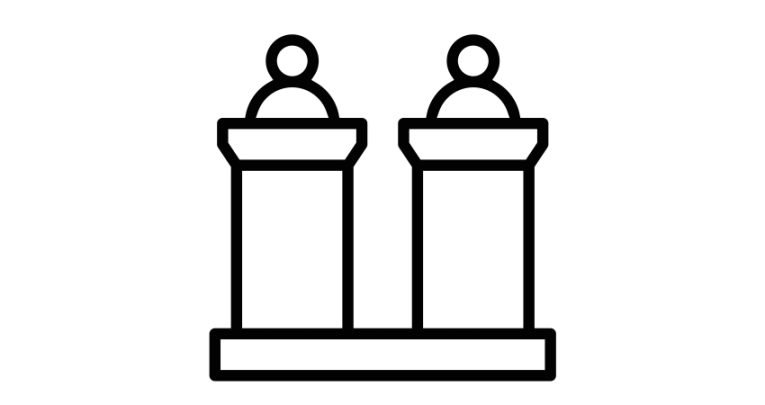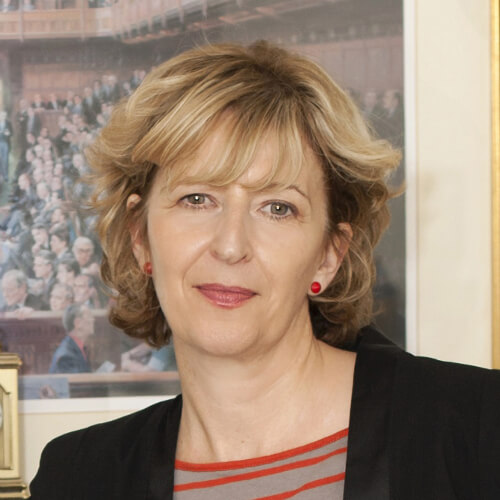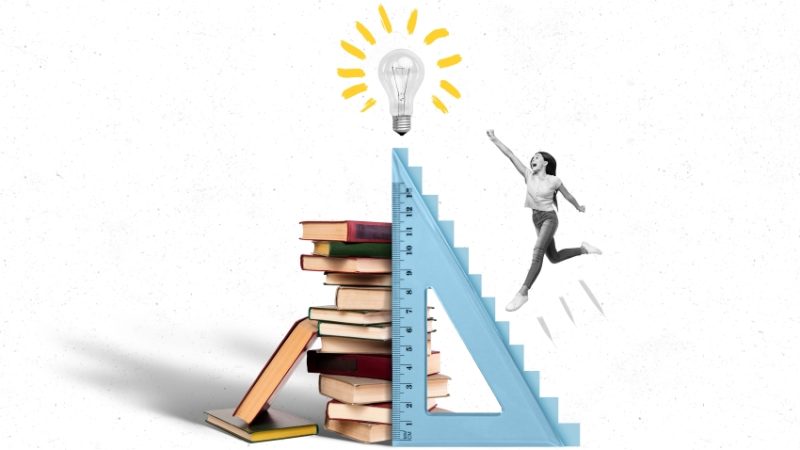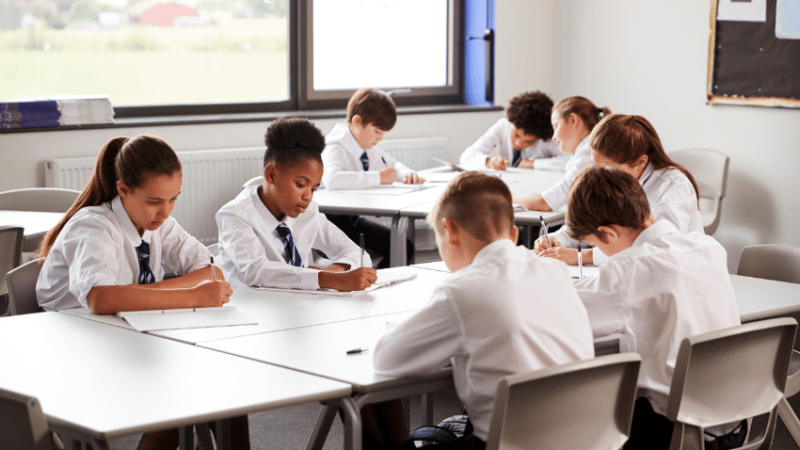Education policy – The two main parties’ different visions for England’s schools

Setting aside the rapid turnover of Ministers, what do the competing Conservative and Labour visions for education in England look like?

- by Melissa Benn

Where do the two main political parties now stand on education? The chaos of early autumn surely tarnishes our view of the Conservative offer.
Since spring of 2021, there have been no fewer than five Secretaries of State, some with farcically short tenures. Michelle Donelan lasted 36 hours. James Cleverley served for one month and 30 days, while his successor, Kit Malthouse, was in post for just eight days less than that.
Of all the Education Secretaries since 2010, Michael Gove stands alone as having had a distinctive, if controversial legacy (unless you count the fiasco arising from Gavin Williamson’s handling of exam grading during the pandemic).
The bigger picture looks pretty grim. Over the last decade, funding has dropped dramatically, teacher recruitment and retention are both at perilously low levels, school buildings are crumbling, morale across the profession is low, and as I write this, the likelihood of strike action by teachers this winter continues to grow.
Too often, big plans have been dropped at the last minute – see the recent Schools Bill. And what impact will Austerity Mk. 2 have on our struggling schools?
The ‘silver bullet’
Rishi Sunak has signalled to the media that education is his highest priority, the ‘silver bullet’ that will transform our nation, and now talks about introducing a British Baccalaureate.
Whatever he has in mind, he’ll have to drop that ‘British’ qualifier, given that education policy is devolved across the UK. But Sunak’s Baccalaureate will certainly differ from Michael Gove’s version, which comprised a narrow range of academic GCSEs.
It’s likely to instead draw on proposals that have emerged over the last five years from a range of influential bodies, including the Times Education Commission and the independent think tank EDSK, which are calling for more substantive and creative reforms of the upper secondary stage.
‘Bacc’ advocates differ on whether to preserve GCSEs and A Levels, but virtually everyone agrees (rightly) that secondary schools in the 21st century should offer parity between academic and vocational courses, and give students the chance to experience both up to the age of 18.
Sound ideas
I’m rather sorry to not see Labour pushing its own version of the Baccalaureate. In one sense, it’s natural Labour territory, with its more democratic and realistic take on how to provide rigour, variety and fairness within secondary education.
Keir Starmer and shadow Education Secretary Bridget Phillipson may be holding back, due to New Labour’s botched handling of the seminal Tomlinson report of 2004, which outlined an early version of the Bacc model, only for then Prime Minister Tony Blair to resist ditching what he saw as the ‘gold standard’ of A Levels. But that was almost 20 years ago, and the latest Bacc plans now specifically allow for the retention of A-levels.
Otherwise, Labour has some sound ideas for catch-up tutoring and Early Years provision, and has presented some bold proposals on private schools – including ending their charitable tax breaks, adding VAT to school fees and transferring some of the resulting income to a teacher recruitment fund. It’s also pledged to reform Ofsted.
Yet whatever its policies entail, little in state education will change without a commitment to sustained and substantive investment in everything from Early Years (where the sector is largely for-profit and hugely expensive) to adult learning. No-one is under any illusion that a Labour government could easily rebuild state education after years of cuts, but that should certainly be a long-term aim for the party.
Stark contrast
One area that may yet prove increasingly relevant as the next general election looms is the contrast in educational background between both parties’ most prominent figures. The majority of Rishi Sunak’s cabinet are privately educated, with many, including Sunak himself, choosing to send their own children to expensive independent schools.
In contrast, the vast majority of Starmer’s front bench attended non-selective state schools and few, if any, senior Labour names now choose private education for their children (though this was not always so).
The divide seems stark, prompting some commentators to start seriously pondering which party is best placed to understand and support a sector on which 93% of our country’s young people depend.
Melissa Benn is a writer and campaigner, and visiting professor of education at York St John University










